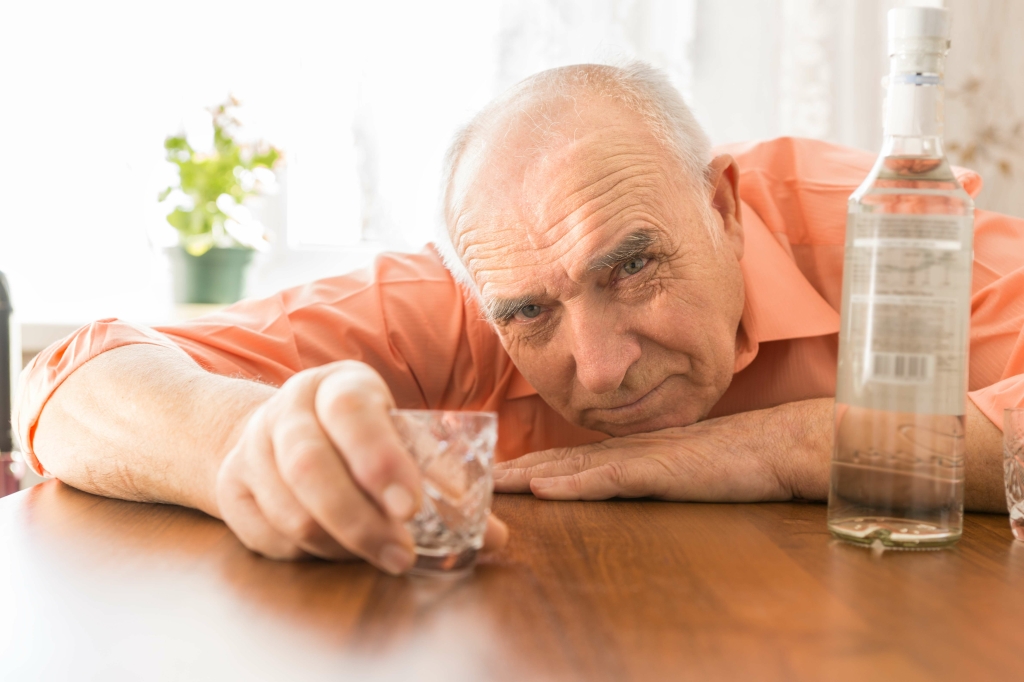This limits the body’s ability to maintain itself, resulting in faster aging. While we may shrug off the short-term effects of alcohol, the reality is that alcohol’s impact goes far beyond the surface (no pun intended). Let’s take a closer look at how alcohol influences cellular aging, one sip at a time.
Conditions & Services
People who drink heavily are also two does alcohol age you to three times as likely to smoke as those who don’t. Smoking also weakens collagen, and lines around the eyes and mouth are especially prevalent among smokers. Moreover, alcohol sometimes triggers the skin cells to release a chemical compound called histamine. As we get older, our epidermis — the outer layer of the skin — thins out, wrinkles, and gets somewhat discolored. Indeed, whenever we’re trying to guess someone’s age, we’re usually looking at that person’s skin to figure it out. Of course, we are talking about aging in terms of skin/appearance/beauty here and not other health issues.
Longtime Alcohol Consumption Speeds Up Biological Aging
Internally, alcohol strains your liver, which is crucial for detoxification and removing alcohol from your body. Chronic drinking can lead to liver damage, hormonal imbalances, oxidative stress, and systemic inflammation, all of which contribute to premature aging (4). “Our results highlight the negative impact of excessive alcohol consumption, such as binge drinking, on biological aging,” Nannini said. As you age, the body’s mechanisms that protect you from free radicals diminish. Therefore, you’re at a greater risk of developing a wide range of health problems, including the neurodegenerative conditions that affect your cognition and memory.
A bout of heavy drinking will make wrinkles like crow’s feet, brow furrows and smile lines appear more prominent. Regular drinkers can trigger biological functions that make them age from the inside out. If you drink heavily or consistently, you could activate the aging process, putting you at risk of health conditions that typically affect older people. Some types of dementia and alcohol-related brain damage develop as your brain cells shrink.
- No content on this site, regardless of date, should ever be used as a substitute for direct medical advice from your doctor or other qualified clinician.
- Plus, we’re always introducing new features to optimize your in-app experience.
- The bad news, however, is that in practice we don’t really know how to do it.
Your Body and Alcohol
Alcohol also increases oxidative stress and the production of harmful free radicals, which can break down collagen (the skin’s main structural protein) and lead to loss of elasticity. A breakdown in collagen and elasticity can make the skin saggier over time, and make fine lines and wrinkles more noticeable. If http://app.fashionplano.com/writing-a-goodbye-letter-to-addiction-icarus-get/ you’re clocking more than seven drinks a week or more than three on any given day, doctors and health experts recommend changing your habits. Even if you haven’t hit that upper limit, you could benefit from drinking less as you get older.
Alcohol can cause a lack of rest from a depleted sleep cycle. Usually, alcohol makes a person toss and turn during the night. In other words, a person suffers from poor quality of sleep. Without being able to enjoy deep sleep, which is known to restore health, a person will look and feel much older than his or her actual age.
This results in critically low levels of vitamin D levels in the blood of heavy and moderate drinkers. Binge drinking causes low zinc levels by disrupting its absorption from your digestive tract. Zinc is an essential dietary mineral that plays a key role in immune system function, neurological development, DNA synthesis, cell growth, vitamin absorption, skin health, and other vital metabolic processes. There was no detectable additional damage to the DNA of those who consumed less than 17 units a week — where 20 units equals two 750ml bottles of wine (or, 25.4 ounces) at 13.5 percent alcohol content. This suggests “a necessary minimum amount of alcohol consumption is required to damage telomeres,” according to the authors. Studies have linked shorter telomeres to diseases such as Alzheimer’s, cancer and cardiovascular disease, which become more prevalent in people as they age.
Exploring Alcohol’s Impact on Cellular Aging

Anya Topiwala qualified in medicine from the University of Oxford and subsequently pursued specialist training in older adult psychiatry. In 2017, she completed a DPhil in Psychiatry based on the MRC-funded study “Predicting MRI abnormalities with longitudinal data of the Whitehall II Substudy”. In 2019, Topiwala was awarded a Wellcome Trust Clinical Research Career Development Fellowship to investigate the effect of mechanistic pathways through which alcohol consumption impacts brain health. Alcohol can affect the way some vital organs work and make them age faster.
Internal organs such as the heart, brain, liver, and pancreas also experience accelerated decline, disease progression, and changes at the cellular level that are consistent with premature aging. Recent research indicates that excessive alcohol consumption can indeed speed up the aging process at a biological level. Some people—including those who are elderly—may get wobbly after one alcoholic beverage, while others need a few drinks to feel any impact. “Body size and composition are significant factors in alcohol detoxification and tolerance regardless of age,” says Dr. Schwartz.
Does alcohol /really/ age your appearance faster?
Our nutrition therapy program complements your alcohol detox journey by providing education and meal planning guidance that is focused on restoring your health. In addition to poor nutrient intake, alcohol also sabotages the sex hormone balance that is critical for healthy bone renewal. Moderate estrogen and testosterone levels allow for bone cells to be broken down and regenerated, which helps maintain bone density and flexibility.

Health
Even moderate drinking slows reaction times and impairs coordination, making tripping or stumbling more likely. Alcohol affects balance and coordination, making falls more likely. Older adults also are more likely to have balance, hearing, and eyesight problems. This puts them at higher risk for falls, broken bones, and car crashes tied to drinking.
Alcohol has a dramatic impact on your biological age. Here’s how
When a person’s body is rid of toxins from alcohol, he or she will have better skin, healthier hair and nails, and a younger complexion. Since alcohol depletes levels of vitamins, (especially vitamin A) the skin’s collagen levels plummet. As a result, a person’s skin may lose all elasticity and become wrinkled. Wrinkles may be caused by alcohol’s ability to dehydrate the skin as well. “This study looked at average consumption, but we’re curious whether drinking one beer a day is better than drug addiction treatment drinking none during the week and then seven on the weekend,” Nave said. “There’s some evidence that binge drinking is worse for the brain, but we haven’t looked closely at that yet.”
